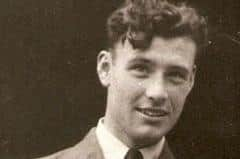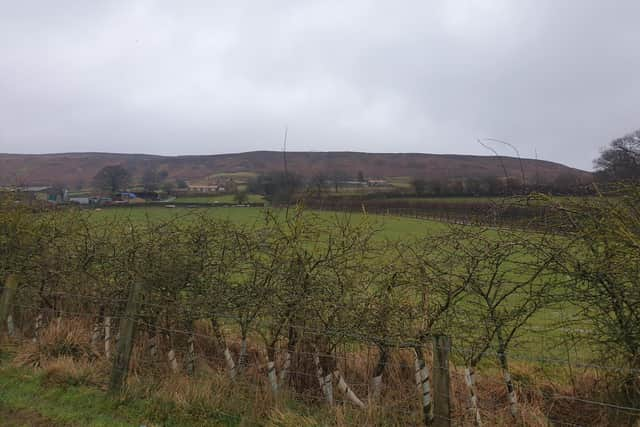Chop Gate bones: Inquest opens into death of pilot killed in World War Two plane crash in the North York Moors
RAF officer Alfred Robert William Milne was just 22 when he and his navigator, Eric Stubbs, were killed when their Mosquito aircraft came down on hills near Bransdale in the North York Moors in October 1944.
The RAF sent a salvage crew to the remote area at the time as the Mosquito was carrying a top-secret prototype 'Highball' bomb designed by Barnes Wallis, which was recovered without detonating.
Advertisement
Hide AdAdvertisement
Hide AdThe bodies of both men were supposedly repatriated to Surrey, where they were buried with full military honours.


Yet in February 2020 remains later identified by police as belonging to the two airmen were found at Appletree Hurst Cottage, an isolated smallholding near the village of Chop Gate, around an hour's walk from the crash site.
A major investigation was launched and a 74-year-old man was arrested, but no charges were ever brought and the case was closed after a second burial ceremony attended by descendants of both Mr Milne and Mr Stubbs at the cemetery where they were interred in 1944.
Today an assistant coroner for North Yorkshire opened an inquest into the death of Alfred Milne, with that of Eric Stubbs to follow at a later date.
Advertisement
Hide AdAdvertisement
Hide Ad

He established that Mr Milne was born in London in 1921 and died of 'unascertained' causes due to the crash landing of the military aircraft that he was the occupant of. Identification was confirmed in 2020.
His occupation was given as a pilot and his marital status was given as married, as he had recently wed his widow Gwendoline before his death. They did not have children.
The inquest was adjourned to allow for further enquiries to be made.
Appletree Hurst Cottage was already well-known in aviation circles as the home of Kenneth Ward, a collector of World War Two memorabilia, who lived there until 2011, when he was jailed for harassing a woman living at a neighbouring farm. Although the cottage is in a poor condition and currently uninhabited, the adjoining farmhouse was sold to new owners who discovered the bones.
Advertisement
Hide AdAdvertisement
Hide AdA large amount of aircraft parts remained on the site after Ward's imprisonment and the MOD has been involved in their dispersal, with many now stored at a secure location.
The crash was witnessed by a farm worker who had to cycle to the nearest telephone at Gillamoor to inform the authorities. The airmen's Mosquito was on a secret transit flight between two airfields at the time. Much of the wreckage was allowed to remain at the site, though some was recovered and donated to museums in 1969 by a preservation society.
Mr Milne is survived by his two nephews, David and Michael Peterson, who live in the south of England and attended the burial of their uncle in August 2021.
They are the last surviving descendants of Alfred Milne. Their mother was Alfred’s sister, and the family have kept mementoes of his WW2 service, including letters and medals.
Advertisement
Hide AdAdvertisement
Hide AdDuring the 2020 investigation, the MOD contacted them to ask for DNA samples, as Alfred’s brother had also died childless.
The Petersons were initially puzzled - they knew the location of their uncle’s grave and as far as they were aware, the Milnes had never been warned that their son’s remains might not have been completely recovered from Bransdale.
The facts they have found out since the investigation have been ‘a bit of a whirlwind’, according to David.
“We were told the CPS had rejected a charge because of lack of evidence - they just didn’t have enough. We found out about the circumstances mostly at the burial ceremony, as so many people from the MOD attended. They told us it was a very interesting case and that a lot had been found at Chop Gate.
Advertisement
Hide AdAdvertisement
Hide Ad“They couldn’t tell us too much but what we found out was astonishing.”
Mr Peterson initially believed that the investigation had at first been concerned mainly with tracing relatives before potential criminality was explored.
“We didn’t really think this would be that big an investigation at first, but there were a lot of people at the funeral. It was phenomenal. They really thought they would be able to collect the evidence and they tried so hard.
“We didn’t know anything about the Mosquito flight and the bouncing bomb - we thought he must have been coming back from an air raid. It was a very important mission.
“We still have letters he wrote when he was training to his parents and our mother, where he talks about how difficult it was to navigate by visibility alone.”

